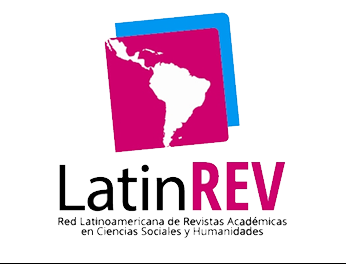Motivación académica y desempeño en física en un grupo de estudiantes de un liceo rumano
Resumen
El presente estudio, cuantitativo y transversal, tuvo como objetivo determinar si las dimensiones de la motivación académica son predictoras significativos de las calificaciones de física de 96 estudiantes de nivel medio superior de una escuela en Rumania, con especialización en matemática e informática. Se utilizaron la Escala de Motivación Académica (AMS HS-28) y registros de calificaciones escolares para medir el desempeño en física. Para el análisis de los datos se utilizó la regresión lineal múltiple. Los resultados mostraron que la motivación intrínseca para el conocimiento es un predictor positivo de las calificaciones de física (β = .476, p = .009), y que la motivación extrínseca es un predictor negativo (β = - .491, p =.001). Se observó también que existe una diferencia significativa entre los dos sexos en la subescala de motivación de inducción extrínseca (t = 2.559, p = .012), pues las niñas tuvieron una media de 19.4 y los niños una de 15.8. Se concluye que la motivación intrínseca tiene una relación positiva con el desempeño académico en física, por lo que es necesario que el docente cultive los recursos de la motivación intrínseca permitiendo al mismo tiempo el desarrollo de la autonomía del alumno.
Descargas
Citas
Aladağ, E. (2010). The effects of GIS on students' academic achievement and motivation in seventh-grade social studies lessons in Turkey. International Research in Geographical and Environmental Education, 19(1), 11–23. https://doi.org/10.1080/10382040903545476 DOI: https://doi.org/10.1080/10382040903545476
Areepattamannil, S. (2014). Relationship between academic motivation and Mathematics achievement among Indian adolescents in Canada and India. Journal of General Psychology, 141(3), 247–262. https://doi.org/10.1080/00221309.2014.897929 DOI: https://doi.org/10.1080/00221309.2014.897929
Bacon, A. (2012). Mathematical student motivation. https://eric.ed.gov/?id=ED528937
BaHammam, A. S., Alaseem, A. M., Alzakri, A. A., Almeneessier, A. y Sharif, M. M. (2012). The relationship between sleep and wake habits and academic performance in medical students: A cross-sectional study. BMC Medical Education, 12(61). https://doi.org/10.1186/1472-6920-12-61 DOI: https://doi.org/10.1186/1472-6920-12-61
Barab, S. A. y Plucker, J. A. (2002). Smart people or smart contexts? Cognition, ability, and talent development in an age of situated approaches to knowing and learning. Educational Psychologist, 37(3), 165–182. https://doi.org/10.1207/S15326985EP3703_3 DOI: https://doi.org/10.1207/S15326985EP3703_3
Cavas, P. (2011). Factors affecting the motivation of Turkish primary students for science learning. Science Education International, 22(1), 31–42. http://www.icaseonline.net/sei/march2011/p3.pdf
Deci, E. L. y Ryan, R. M. (1985). Intrinsic motivation and self-determination in human behavior. Plenum. DOI: https://doi.org/10.1007/978-1-4899-2271-7
Deci, E. L. y Ryan, R. M. (2000). The “what” and “why” of goal pursuits: Human needs and the self-determination of behavior. Psychological Inquiry, 11(4), 227–268. https://doi.org/10.1207/S15327965PLI1104_01 DOI: https://doi.org/10.1207/S15327965PLI1104_01
Deci, E. L. y Ryan, R. M. (2008a). Facilitating optimal motivation and psychological well-being across life's domains. Canadian Psychology, 49(1), 14–23. https://doi.org/10.1037/07085591.49.1.14 DOI: https://doi.org/10.1037/0708-5591.49.1.14
Deci, E. L. y Ryan, R. M. (2008b). Self-determination theory: A macrotheory of human motivation, development, and health. Canadian Psychology, 49(3), 182–185. https://doi.org/10.1037/a0012801 DOI: https://doi.org/10.1037/a0012801
Denzine, G. y Brown, R. (2015). Motivation to learn and achievement. En R. Papa (Ed.), Media rich instruction: Connecting curriculum to all learners (pp. 19–34). Springer. https://doi.org/10.1007/978-3-319-00152-4_2 DOI: https://doi.org/10.1007/978-3-319-00152-4_2
Dincer, A. y Yesilyurt, S. (2017). Motivation to speak English: A self-determination theory perspective. PASAA: Journal of Language Teaching and Learning in Thailand, 53, 1–25. http://www.culi.chula.ac.th/publicationsonline/files/article/qSSPiyUzqfMon110323.pdf
Einhorn, B. (1995). Cinderalla goes to market: Citizenship, gender, and women's movements in East Central Europe (Book). American Journal of Sociology, 100(5), 1343–1345. https://doi.org/10.1086/230649 DOI: https://doi.org/10.1086/230649
Ghazi, S. R., Ali, R., Shahzad, S. y Hukamdad, H. (2010). Parental involvement in children academic motivation. Asian Social Science, 6(4), 93–99. https://doi.org/10.5539/ass.v6n4p93 DOI: https://doi.org/10.5539/ass.v6n4p93
Goodman, S., Jaffer, T., Keresztesi, M., Mamdani, F., Mokgatle, D., Musariri, M., Pires, J. y Schlechter, A. (2011). An investigation of the relationship between students' motivation and academic performance as mediated by effort. South African Journal of Psychology, 41(3), 373–385. https://doi.org/10.1177/008124631104100311 DOI: https://doi.org/10.1177/008124631104100311
Guay, F., Mageau, G. A. y Vallerand, R. J. (2003). On the hierarchical structure of selfdetermined motivation: A test of top-down, bottom-up, reciprocal, and horizontal effects. Personality and Social Psychology Bulletin, 29(8), 992–1004. https://doi.org/10.1177/0146167203253297 DOI: https://doi.org/10.1177/0146167203253297
Guay, F., Marsh, H. W., Senécal, C. y Dowson, M. (2008). Representations of relatedness with parents and friends and autonomous academic motivation during the late adolescence-early adulthood period: Reciprocal or unidirectional effects? British Journal of Educational Psychology, 78(4), 621–637. https://doi.org/10.1348/000709908X280971 DOI: https://doi.org/10.1348/000709908X280971
Knotts, H., Livingston, C., Mercer, G. E. y Friedman, B. D. (2004). Integrating teaching, learning, and community outreach: Western Carolina’s local government youth assembly. International Social Science Review, 79(1/2), 56–62. https://www.jstor.org/stable/41887169
Levpuscek, M. P., Zupancic, M. y Socan, G. (2012). Predicting achievement in Mathematics in adolescent students: The role of individual and social factors. The Journal of Early Adolescence, 33(4), 523–551. https://doi.org/10.1177/0272431612450949 DOI: https://doi.org/10.1177/0272431612450949
Linnenbrink, E. A. y Pintrich, P. R. (2002). Motivation as an enabler for academic success. School Psychology Review, 31(3), 313–327. https://doi.org/10.1080/02796015.2002.12086158 DOI: https://doi.org/10.1080/02796015.2002.12086158
Lopes, P., Silva, R., Oliveira, J., Ambrósio, I., Ferreira, D., Crespo, C. y Rosa, P. J. (2018). Rasch analysis on the academic motivation scale in Portuguese University Students. NeuroQuantology, 16(3), 41–46. https://doi.org/10.14704/nq.2018.16.3.1062 DOI: https://doi.org/10.14704/nq.2018.16.3.1062
Morales Rodríguez, F. M. (2011). Aprendizaje, motivación y rendimiento en estudiantes de lengua extranjera inglesa. Psicología Educativa, 17(2), 195–207. https://doi.org/10.5093/ed2011v17n2a6 DOI: https://doi.org/10.5093/ed2011v17n2a6
Niemiec, C. P. y Ryan, R. M. (2009). Autonomy, competence, and relatedness in the classroom: Applying self-determination theory to educational practice. Theory and Research in Education, 7(2), 133–144. https://doi.org/10.1177/1477878509104318 DOI: https://doi.org/10.1177/1477878509104318
Noels, K. A., Pelletier, L. G., Clément, R. y Vallerand, R. J. (2003). Why are you learning a second language? Motivational orientations and self-determination theory. Language Learning, 53(S1), 33–64. https://doi.org/10.1111/1467-9922.53223 DOI: https://doi.org/10.1111/1467-9922.53223
Organisation for Economic Co-operation and Development. (2007). PISA 2006 science competencies for tomorrow’s world. https://www.oecd.org/unitedstates/39722597.pdf
Palmer, D. (2007). What is the best way to motivate students in science? Teaching Science, 53(1), 38–42. https://novaprd-lb.newcastle.edu.au/vital/access/manager/Repository/uon:9948
Pi-Yueh, C., Mei-Lan, L. y Chia-Kai, S. (2011). Attitudes and motivations of students taking professional certificate examinations. Social Behavior and Personality, 39(10), 1303–1314. https://doi.org/10.2224/sbp.2011.39.10.1303 DOI: https://doi.org/10.2224/sbp.2011.39.10.1303
Schatt, M. D. (2011). Achievement motivation and the adolescent musician: A synthesis of the literature. Research and Issues in Music Education, 9(1), Artículo 5. https://commons.lib.jmu.edu/rime/vol9/iss1/5/
Schiffrin, H. y Liss, M. (2017). The effects of helicopter parenting on academic motivation. Journal of Child and Family Studies, 26(5), 1472–1480. https://doi.org/10.1007/s10826-017-0658z DOI: https://doi.org/10.1007/s10826-017-0658-z
Singh, S., Singh, A. y Singh, K. (2011). Academic motivation among urban and rural students: A study on traditional vs open education system in India. Turkish Online Journal of Distance Education, 12(4), 133–146. https://dergipark.org.tr/en/pub/tojde/issue/16906/176300
Soto, J. G. y Anand, S. (2009). Factors influencing academic performance of students enrolled in a lower division cell biology core course. Journal of the Scholarship of Teaching and Learning, 9(1), 64–80. https://scholarworks.iu.edu/journals/index.php/josotl/article/view/1720
Stover, J. B., Uriel, F., de la Iglesia, G., Freiberg Hoffmann, A. y Fernández Liporace, M. (2014). Rendimiento académico, estrategias de aprendizaje y motivación en alumnos de Escuela Media de Buenos Aires. Perspectivas en Psicología, 11(2), 10–20. http://200.0.183.216/revista/index.php/pep/article/view/159
Thatcher, A., Fridjhon, P. y Cockcroft, K. (2007). The relationship between lecture attendance and academic performance in an undergraduate psychology class. South African Journal of Psychology, 37(3), 656–660. https://doi.org/10.1177/008124630703700316 DOI: https://doi.org/10.1177/008124630703700316
Vallerand, R. J. (2012). From motivation to passion: In search of the motivational processes involved in a meaningful life. Canadian Psychology, 53(1), 42–52. https://doi.org/10.1037/a0026377 DOI: https://doi.org/10.1037/a0026377
Vallerand, R. J., Pelletier, L. G., Blais, M. R., Briere, N. M., Senecal, C. y Vallieres, E. F. (1992). The Academic Motivation Scale: A measure of intrinsic, extrinsic, and amotivation in education. Educational and Psychological Measurement, 52(4), 1003–1017. https://doi.org/10.1177/0013164492052004025 DOI: https://doi.org/10.1177/0013164492052004025
Wagner, E. y Szamosközi, Ş. (2012). Effects of direct academic motivation-enhancing intervention programs: A meta-analysis. Journal of Cognitive and Behavioral Psychotherapies, 12(1), 85-101. http://jebp.psychotherapy.ro/vol-xii-no-1-2012/effects-direct-academic-motivation-enhancing-intervention-programs-meta-analysis/
White, E. G. (2000). Minte, caracter, personalitate. Viață și Sănătate.











